A Simple View of the Phonics Debate
7 Replies
If you missed last week’s ACE/CIS Phonics Debate, you can still watch it online, and read these interesting blog posts about it:
- The ‘Phonics Debate’: a lesson in irony
- Phonics science v/s “the feels”,
- Science v/s slurs: The Phonics Debate, and the delightful follow-up Phonics Advocates Have Something To Sell, and
- Phonics debate embracing the evidence.
Prof Pamela Snow’s latest blog post isn’t about the debate, but instead directly addresses the future with an open letter to student teachers.
The debate took me back to my halcyon, pimply youth at Warrnambool High School, where our public speaking teacher, Mrs Melican, used to say, “You don’t win a debate by ignoring the topic and debating something else”.
The Phonics Debate’s topic was “Phonics in context is not enough: synthetic phonics and learning to read”. The theoretical backdrop to this is the robust, evidence-based Simple View of Reading, first proposed by Gough and Tunmer in 1986, showing that reading comprehension is the product of two separate skills: decoding and listening comprehension.
Here’s my favourite analogy for the Simple View of Reading, which comes from Dr Maria Murray of the US Reading League: reading comprehension (RC, apparently AKA in the Ed Biz as “meaning-making”) is the gold in a treasure chest with two separate locks: a decoding lock (D) and a listening comprehension (LC) lock. (more…)
Nobody advocates phonics-only literacy instruction
9 Replies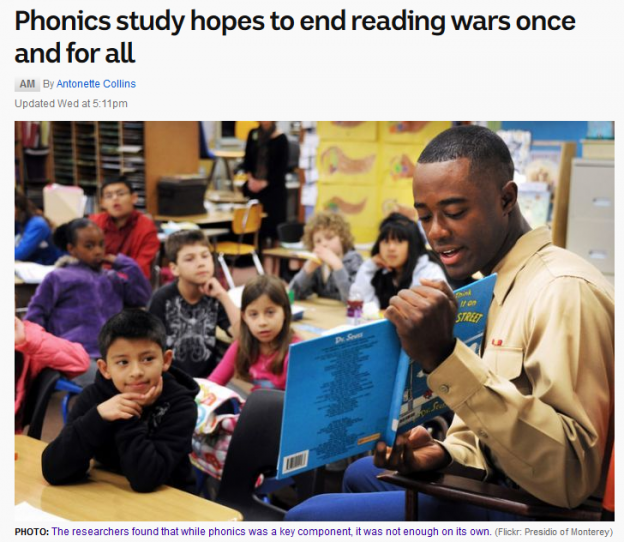
An important article by Anne Castles, Kathleen Rastle and Kate Nation summarising the process of learning to read from novice to expert, and seeking to end the “reading wars”, has just been published.
It’s written in plain English and freely available online. It says that phonemic awareness and phonics are vital and central during the early stages of learning to read, but that a lot of other things are involved in becoming a proficient reader. Please read it and share the link around.
Of course, the media’s antennae tend to be tuned to conflict not consensus, so one newspaper reports this with the headline, “Call off the reading wars, phonics wins: study“. The ABC also interviewed one of the authors, Anne Castles, who said a lot of tremendously sensible things as she always does (you can hear her in a radio report here), and also sought comment from Dr Paul Gardner of Curtin University’s School of Education.
Re ending the “reading wars” he said that, “the problem was with those who advocate phonics as the only approach” and added that “They tend to be people with no classroom experience … from speech pathology, cognitive psychology and think tanks”.
Now, I know not everything is about me, but I reckon I’m probably one of the people he is talking about, since I write a widely-read blog about phonics and am a speech pathologist.
If I wrote a blog about cycling, I’d be very surprised to hear anyone claim I was advocating cycling as the only means of transport. If I wrote a blog about pineapples, I doubt anyone would infer that I was advocating a pineapples-only diet. (more…)
Our goal is to develop phoneme proficiency in kids
6 Replies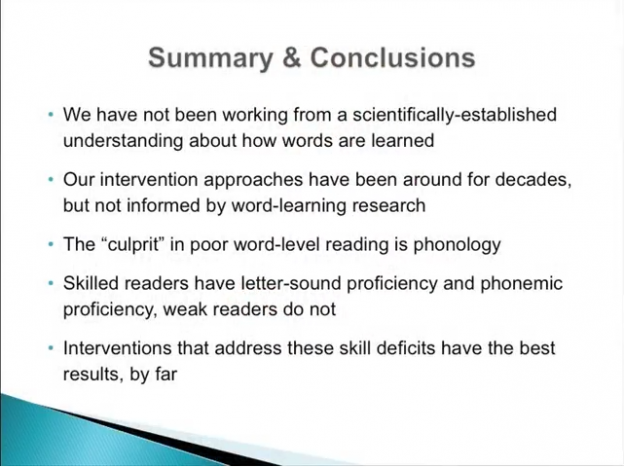
This is a summary of the second half of an online video seminar entitled “Assessment and Highly Effective Intervention in Light of Advances in Understanding Word-Level Reading” (the first half I recently summarised here), which I hope encourages you to watch the whole thing.
It’s by Dr David Kilpatrick, was recorded at the 2017 Reading in the Rockies conference, and is on the Colorado Dept of Education website. Thanks so much to all those involved in putting this great information in the public domain.
The talk’s summary and conclusions are a good place to start:
- We have not been working from a scientifically-established understanding about how words are learned.
- Our intervention approaches have been around for decades, but are not informed by word-learning research.
- The “culprit” in poor word-level reading is phonology.
- Skilled readers have letter-sound proficiency and phonemic proficiency, weak readers do not.
- Interventions that address these skill deficits have the best results, by far.
Things tie together when you have a really good theory
36 Replies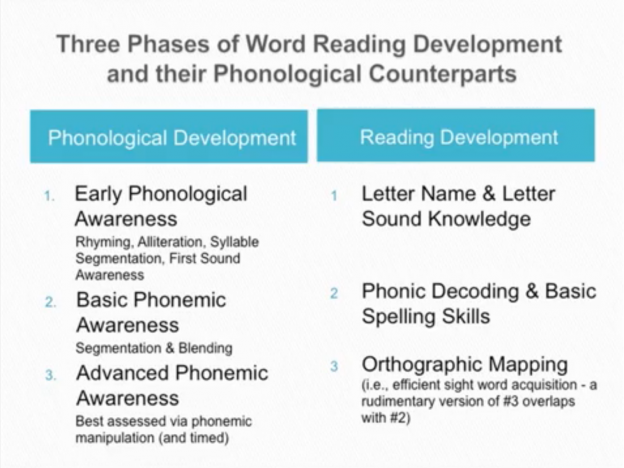
There’s some free online learning that I’d recommend to anyone who works with beginning or struggling readers/spellers. You’ll find it on the Colorado Dept of Education website and was recorded at the 2017 Reading in the Rockies conference (thanks to the organisers!).
However, it’s three videos, each more than an hour long. Teachers are time-poor. They understandably aren’t keen to watch long work-related videos unless they know what they’re about, and believe they and their students will benefit.
So I’ve decided to write a blog about each video, summarising what I think are the key points, and recording the time on the video clock each is made, to assist those skimming to find topics of interest. I hope people will then be motivated to go back and watch the whole thing. (more…)
What kind of knowledge is needed for good spelling?
4 Replies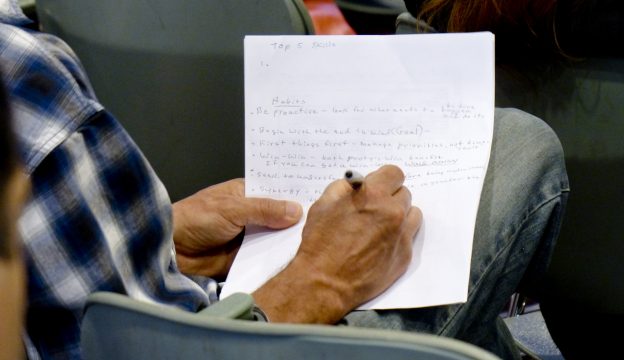
A lot has been written by philosophers and in Dilbert cartoons about different types of knowledge.
Often these are described using terms like “explicit” versus “tacit” or “declarative” versus “procedural” knowledge. What matters most for spelling?
Declarative versus procedural knowledge
Explicit, declarative knowledge is theoretical information about a subject e.g. that we use a base 10 number system, and that our Solar System has 8 planets (sorry, Pluto). Libraries, databases and the internet are full of it.
Procedural knowledge is often harder to describe (more tacit) and more practical. It’s knowing how to do something, like tie up a shoelace, play the guitar or ride a bike.
I have quite a bit of explicit, declarative knowledge about how to play brilliant tennis (yes, the Australian Open men’s final is on, but we love both Roger and Raffa, so who to barrack for?!) but despite years of trying (our tiny country town didn’t have enough kids to field a team without unco asthmatic me), I never managed to convert this into much procedural knowledge.
I’ve been nerdily immersed in spelling books lately, and have realised that most books about spelling are full of explicit, declarative knowledge, but aren’t necessarily much help with the “how”, or what we should be doing to build tacit, procedural knowledge of spelling. (more…)
Controversial dyslexia therapies
17 Replies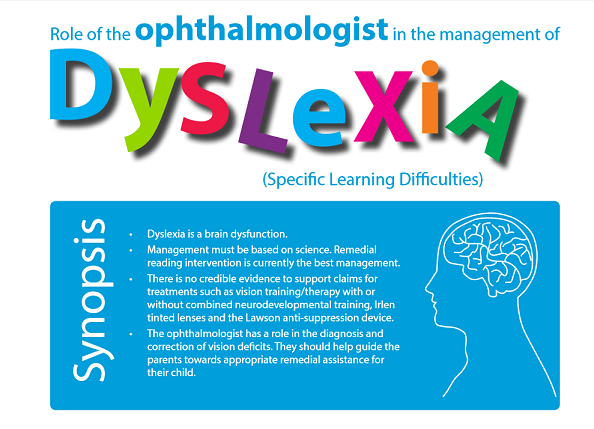
Parents often tell me they wasted precious time and money on controversial reading/spelling/dyslexia therapies that didn’t work.
The time wasted is even more of a worry than the money. The more a child falls behind, the more she or he becomes likely to never be able to catch up.
I’ve written a few blog posts about various controversial therapies, but not a summary one that might be easily found by an anxious, googling parent. So here goes.
A comprehensive reference on the topic of choosing interventions, including a section on reading/spelling interventions, is Pam Snow and Caroline Bowen’s book “Making Sense of Interventions for Children With Developmental Disorders”.
Most readers of this blog will already know about the MUSEC Briefings, which summarised the research on a large number of special needs interventions, many of them controversial. These are no longer being produced or updated, but similar briefings are now being produced as Nomanis Notes.
Another useful source of information about controversial therapies is a 2015 NZ article called Behavioural Interventions to Remediate Learning Disorders, which reviews Arrowsmith, Brain Gym, Cellfield, Cogmed, Davis, Dore, Fast ForWord, Lexia, Lumosity, Slingerland, Tomatis and several other programs.
The 2007 Santiago Declaration by prominent neuroscientists pointed out that “Neuroscientific research, at this stage in its development, does not offer scientific guidelines for policy, practice, or parenting.” Which is polite scientist speak for “neuro and brain-based interventions are mostly bunkum”. You can read more about this here, here and here. (more…)
Filling the gaps in teacher knowledge and skills
8 Replies
I’m the final speaker at the Maryanne Wolf seminar tomorrow in Melbourne, and am just finishing off obsessively polishing my talk.
I don’t have any handouts for the session – I’m wrapping up quite a long day and don’t want to make anyone’s head explode with lots of new information. However, I do have quite a few links I’d like to share, so I thought I’d make them available via this blog post.
Here’s a summary of what I am planning to say, and the links.
The Beautiful Picture
The title of this talk makes it sound like teacher knowledge and skills are like a neat jigsaw puzzle with just a few pieces missing. All we have to do is find the missing bits, put them in to create a Beautiful Picture in which everyone learns to read and spell to the best of their ability, and the average age of diagnosis of dyslexia is five or six, not nine.
Our long tail of literacy underachievement puts us a long way from this Beautiful Picture now. PISA 2012 told us that 14% of Australian 15-year-olds (9% of girls, 18% of boys) were low performers in reading literacy. Improving teacher knowledge and skills is critical to changing that.
The Beautiful Picture we need to create has:
- Knowledgeable, skilled and confident teachers.
- Best-evidence-based teaching in all three of classrooms, small groups and 1:1 intervention.
- Well-equipped schools.
- At least 95% of kids reading/spelling at or above 30th percentile.


